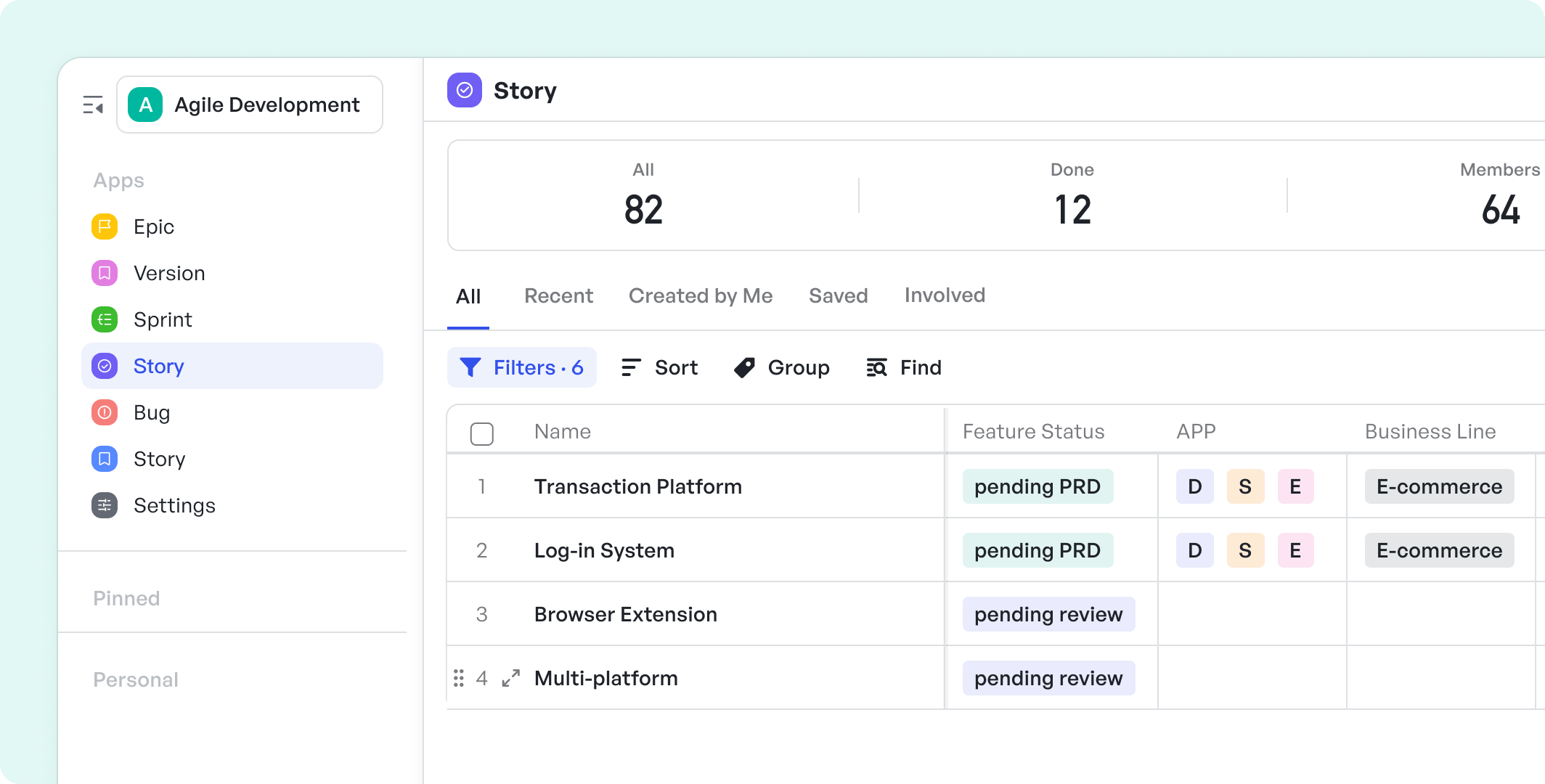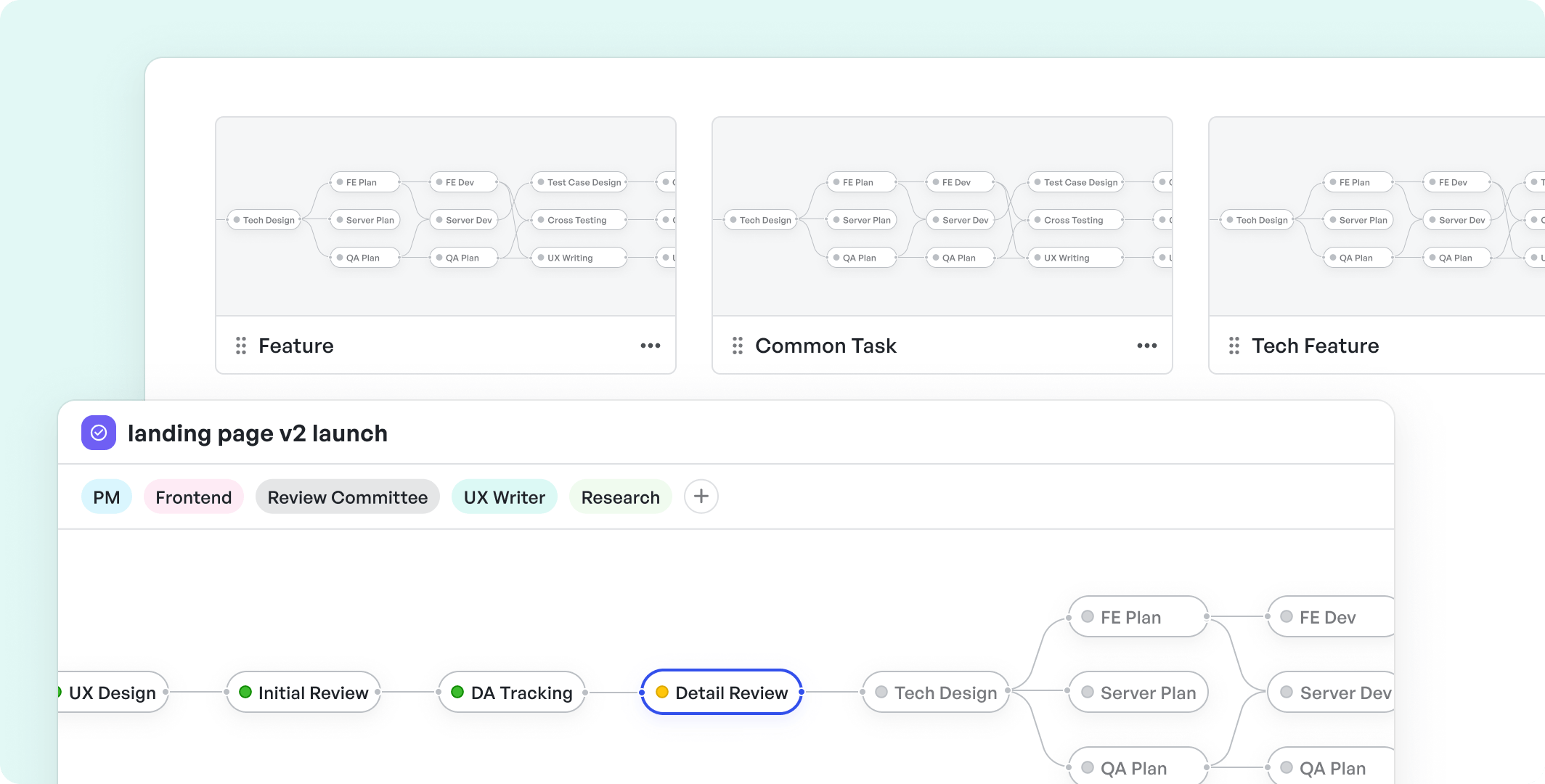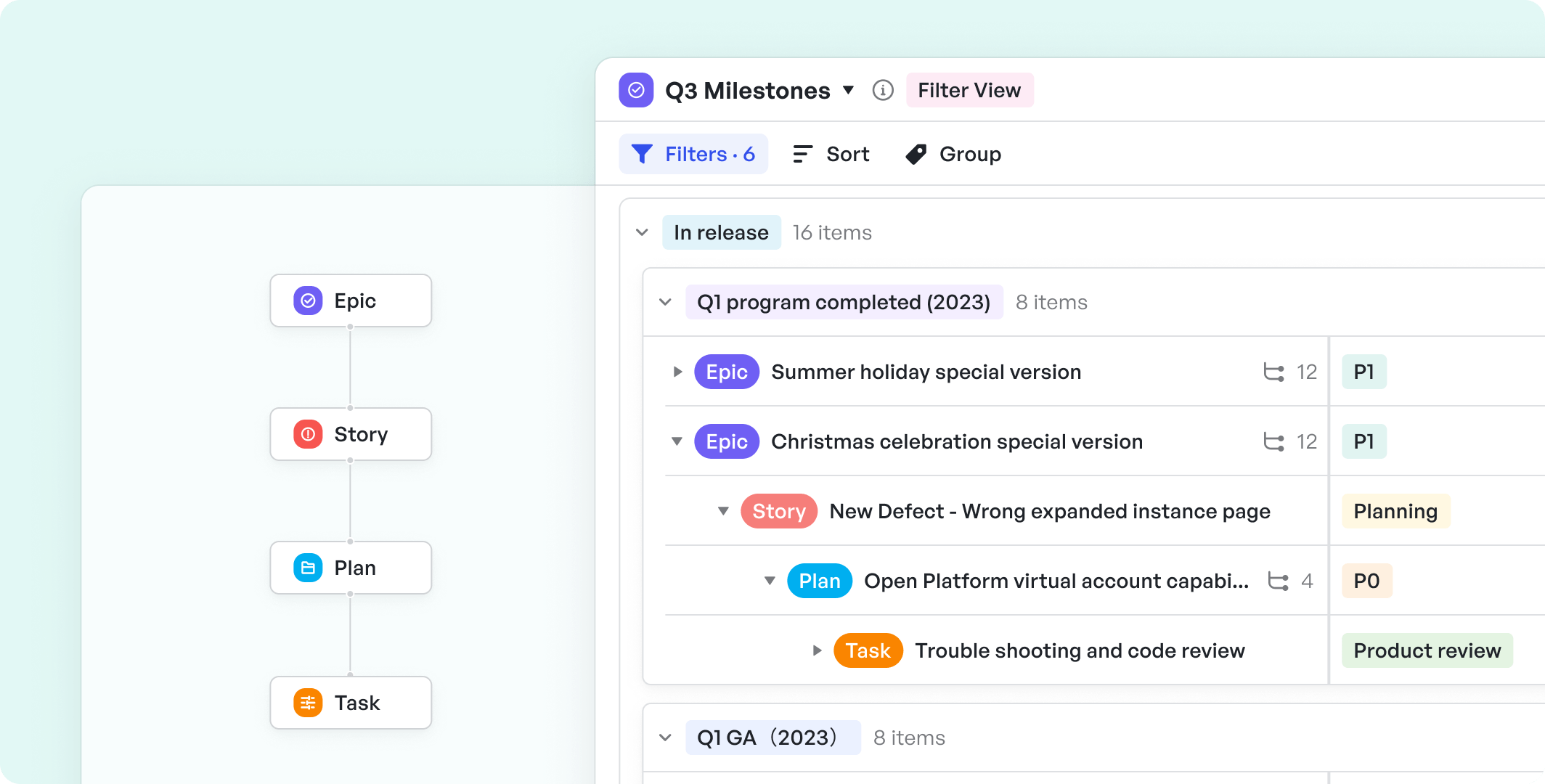Agile Management, derived from Agile software development methodologies, is a style of project management that revolves around iterative progress, flexibility, and feedback. It's used across various industries, not just in software development.
The Meegle Agile management template supports a comprehensive agile project management solution, including Epic, Story, Sprint, Task management, progress tracking, task scheduling, as well as real-time metrics analysis.
Suitable for Teams / Roles
- Agile development teams: Suitable for development teams that adopt agile development frameworks and have periodic iteration requirements.
- Enterprises with complex business processes: Suitable for enterprises with complex business processes and frequent cross-department collaborations.
- Agile PMO: Ensuring that Agile practices are followed, and helping the organization effectively transition to or operate within an Agile framework.
Meegle Work Items
The Meegle Work Items feature is designed to help teams manage their tasks efficiently. It provides a centralized platform where team members can track progress, assign tasks, and collaborate seamlessly. The Meegle Work Items feature supports the agile project planning process by allowing teams to create and manage a product backlog and set up a product roadmap.
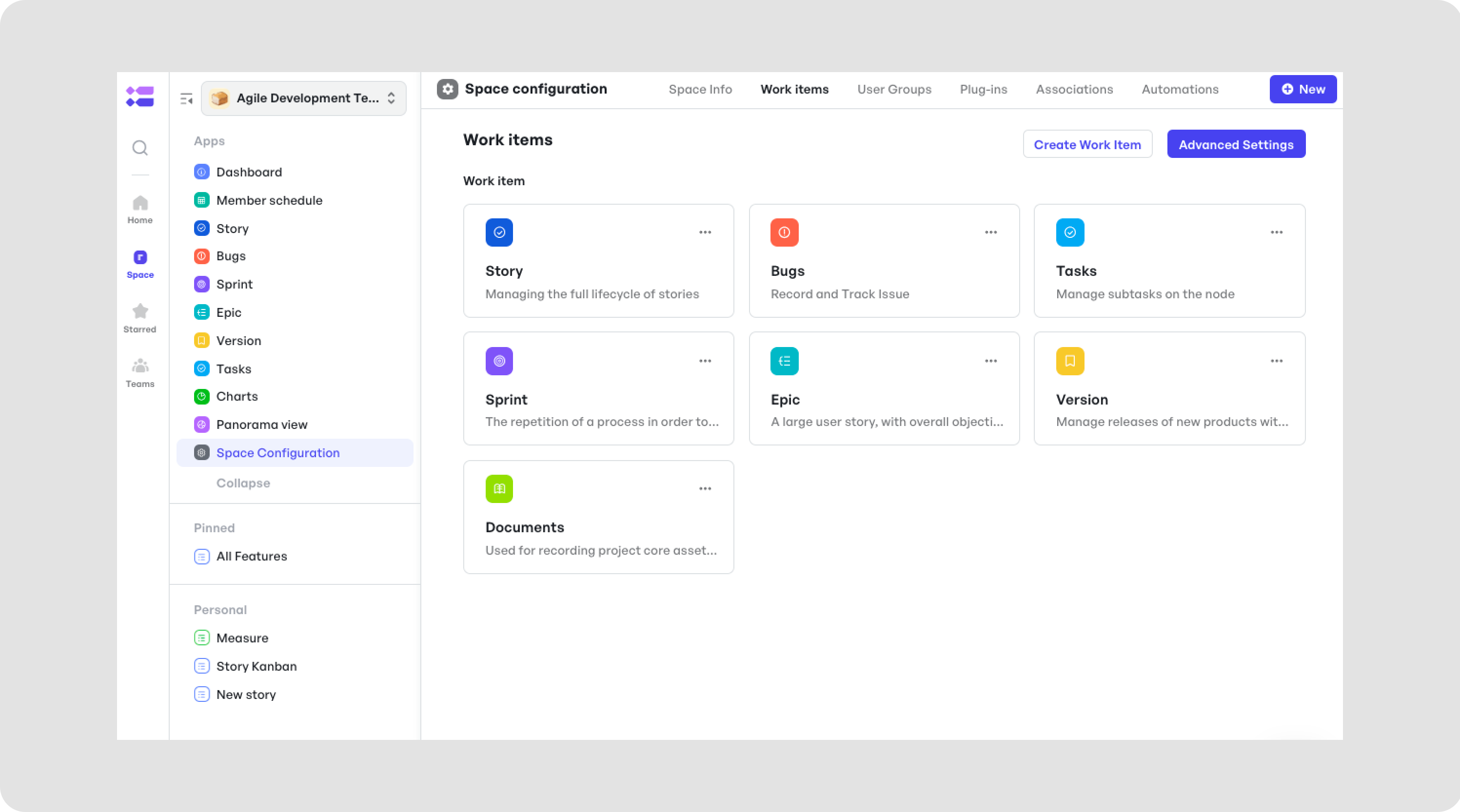
250px|700px|reset
Epic
A large user story, with an overall objective of commercial value. They are associated with stories.
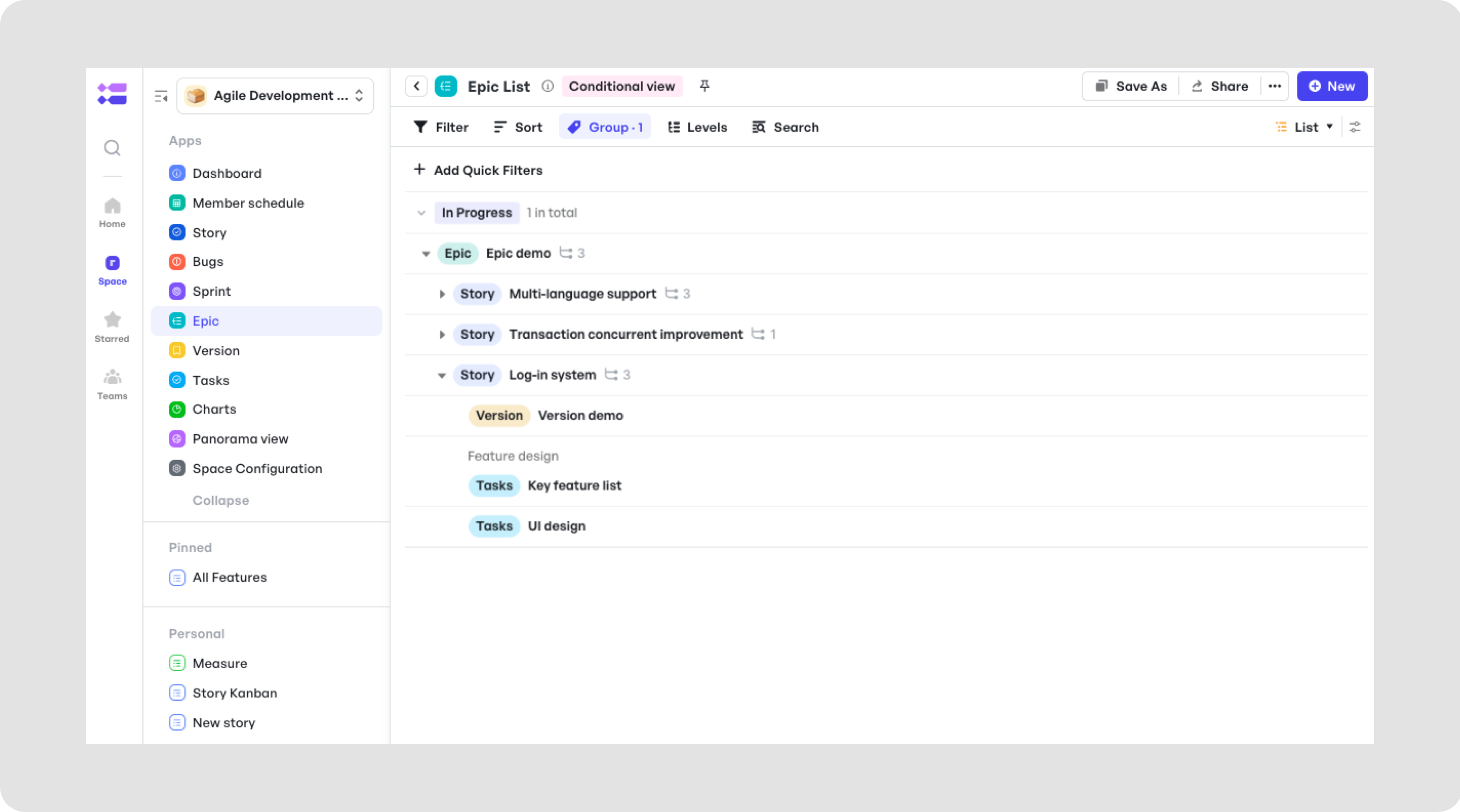
250px|700px|reset
Story
Managing the full lifecycle of user stories.
Agile workflow in Meegle can be effectively implemented by utilizing the tool's flexible and visual workflows that cater to Agile principles.
Related Post
- Flexible Node Settings: A standard agile development workflow is preset inside. Teams can create nodes that represent different stages of the Agile development cycle and manage tasks through these nodes.
- Visualization for Collaboration: Employ Meegle’s various visualization options such as Kanban boards and Gantt charts. These visuals support Agile management by allowing the team to see the status of different tasks at a glance and adjust as needed. An agile template can be used to standardize the documentation and management of user stories.
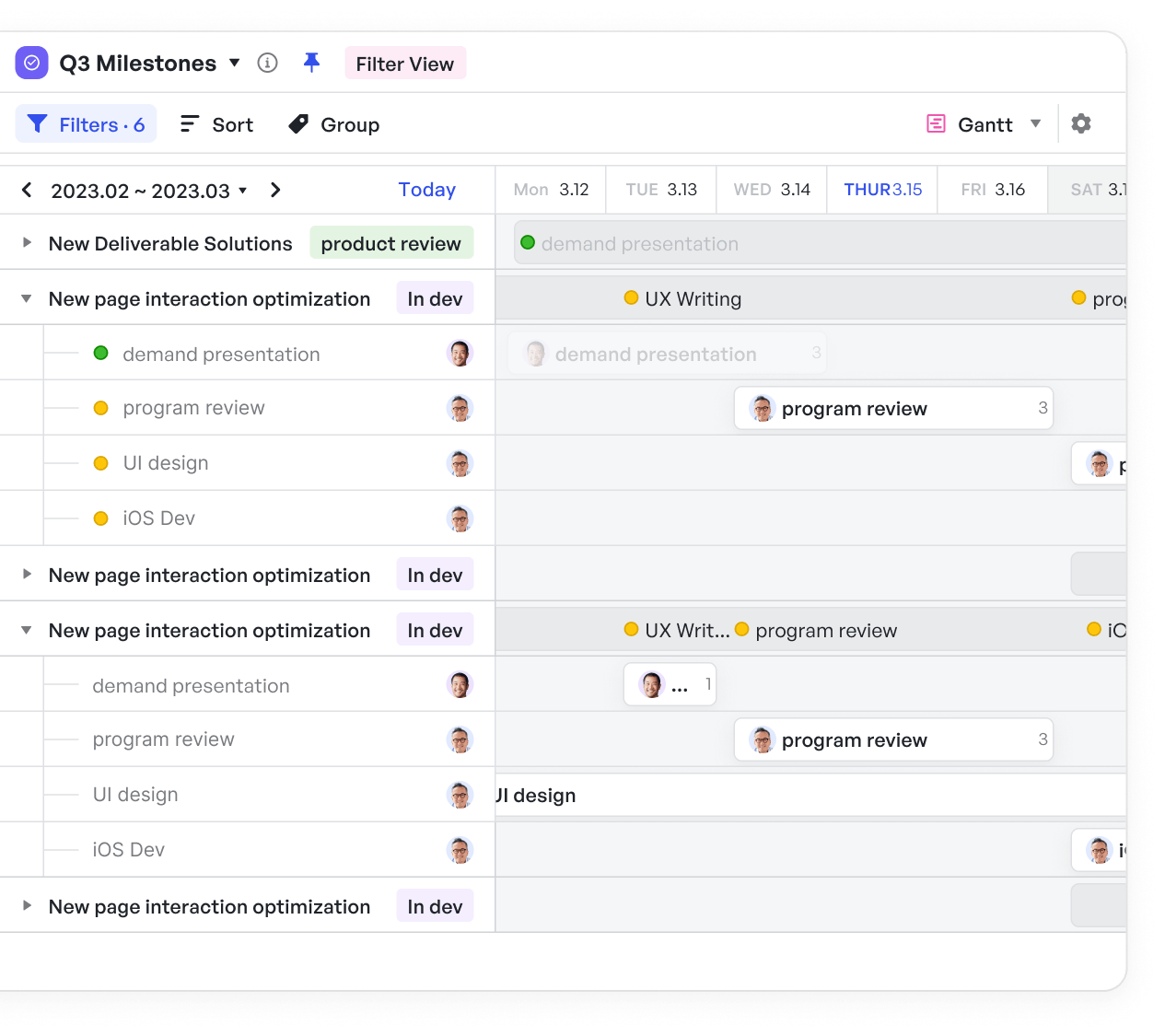
250px|700px|reset
By following these steps, teams can adhere to Agile principles, fostering iterative development, continuous improvement, and rapid response to change. Meegle makes it easier to adapt and refine your Agile workflows, ensuring teams can deliver value to customers faster and more efficiently.
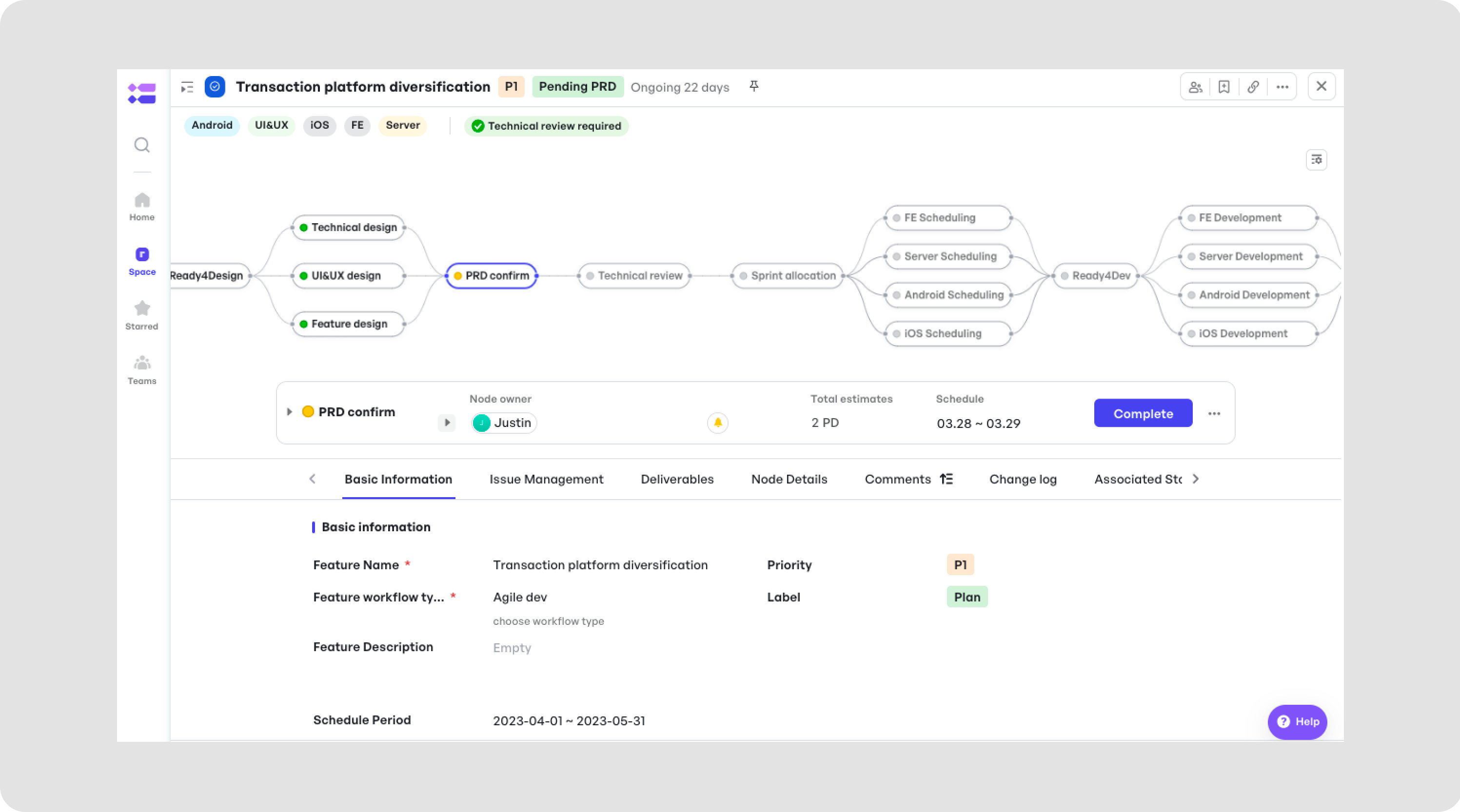
250px|700px|reset
Sprint
A sprint, also known as an iteration, is typically two to four weeks during which the development team works to implement and deliver a discrete product increment, such as a working milestone version. It's a dedicated phase of work to complete a set number of items contributing to the overall project.
To manage a sprint in Meegle:
- Plan Your Sprint: Define the sprint goals and timeframe. Decide which items from the product backlog will be tackled.
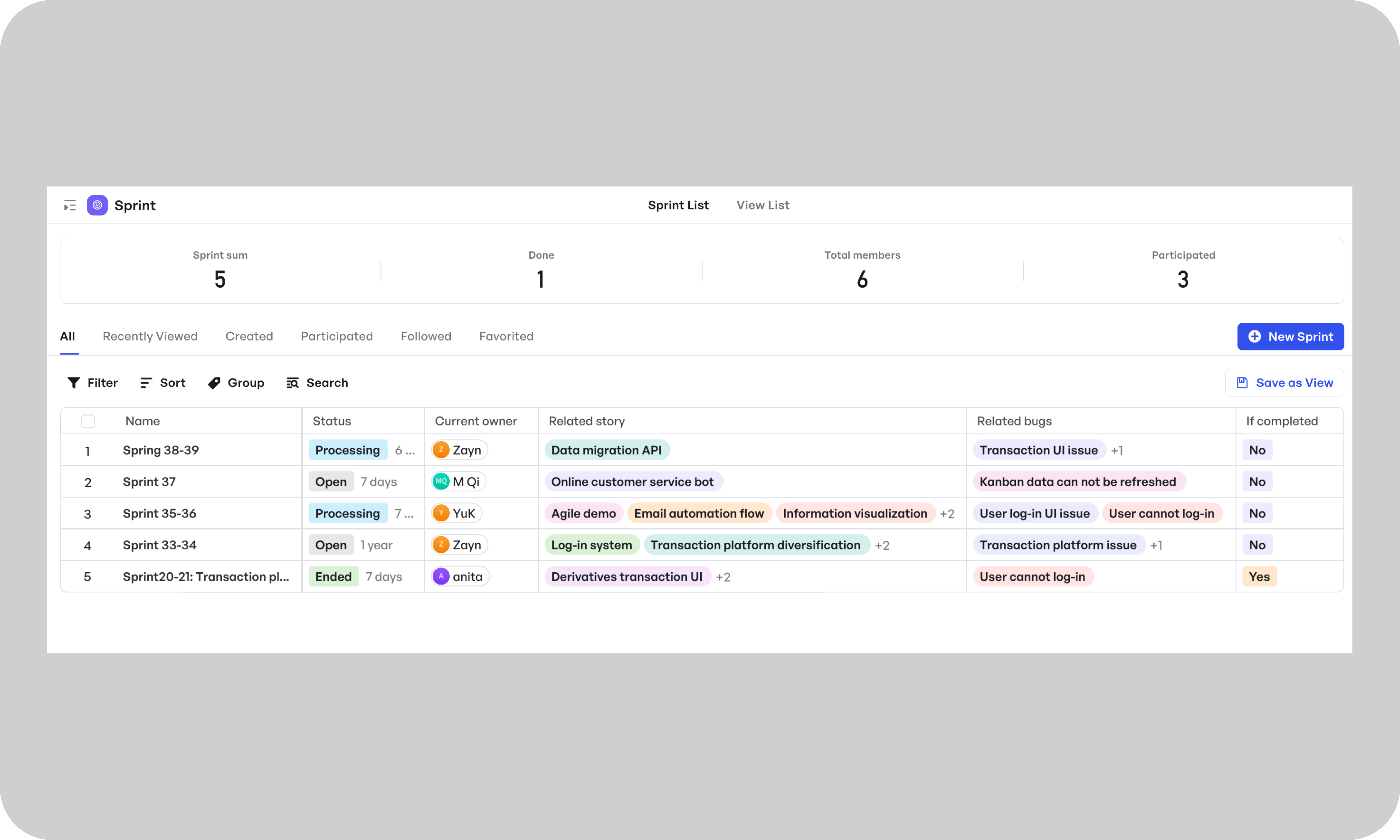
250px|700px|reset
- Assign and Estimate: Assign tasks to team members and set a due date for each sprint.
- Add Stories/Feature to Sprints: Create an associative relationship field to link story/feature and sprint
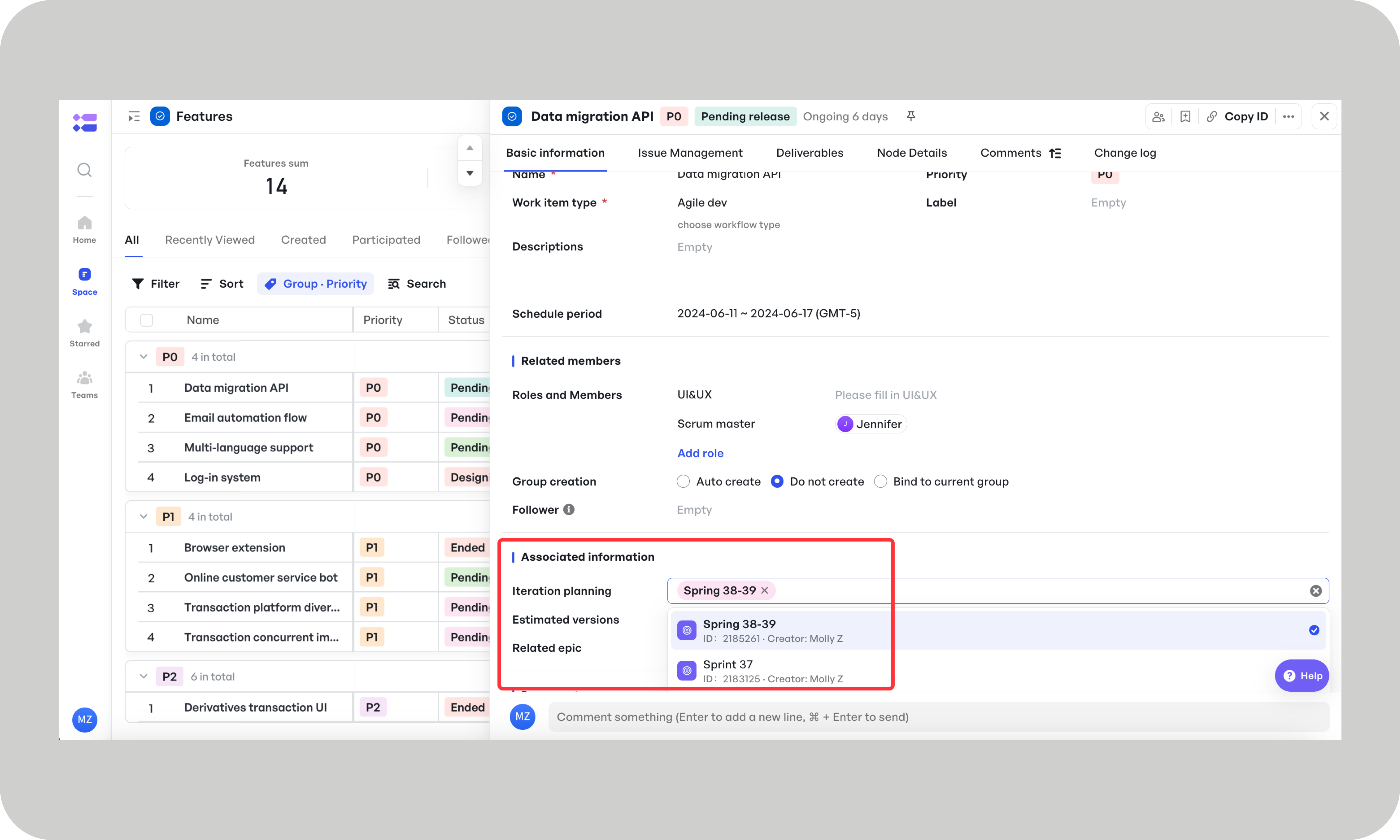
250px|700px|reset
Agile Project Hierarchy
Meegle's project hierarchy structure is a powerful feature that significantly enhances its capability in managing task dependencies. Here’s how it contributes to an efficient workflow management system:
Hierarchical View
Meegle allows users to visualize the project from a higher level by establishing a hierarchical relationship among project components such as goals, epics, features, and issues. This structure organizes project elements in a nested manner, ensuring clarity in understanding the scope and streamlining the process from the top down.
Dependency Clarity
With a clearly outlined structure, it becomes significantly easier to map out dependencies because you can see how smaller tasks feed into larger goals. The dependency between an issue and a feature, or a feature and an epic, is explicitly represented, which is key to managing sequential and contingent tasks effectively.
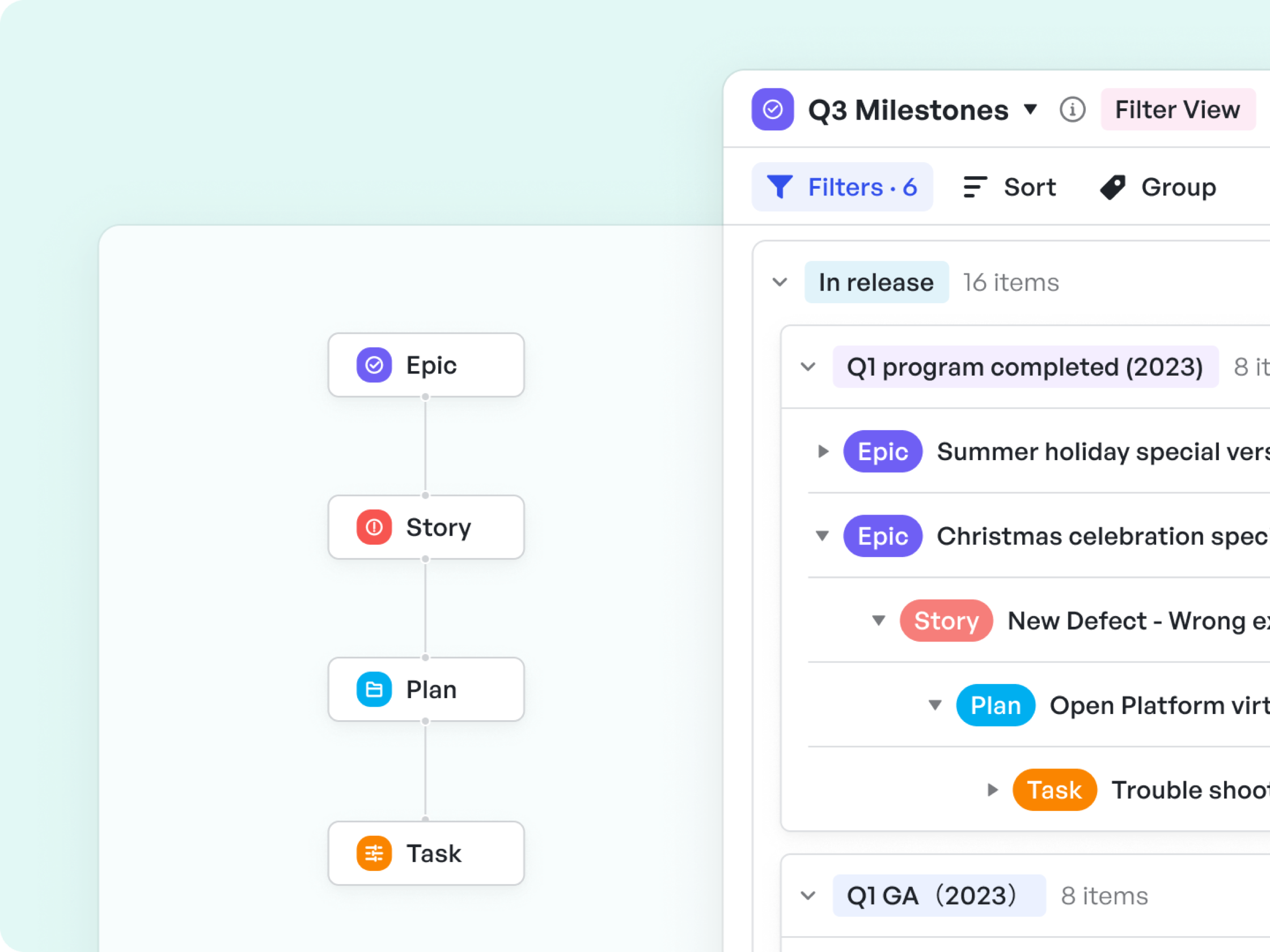
250px|700px|reset
Explore More Functions of Meegle Agile Development Template
- Real-time Metrics Analysis
By harnessing instant data insights, businesses can gain a competitive edge, optimize operations, and capitalize on emerging opportunities. This proactive approach facilitates quick responses to changing market conditions, enabling agile decision-making and fostering a culture of continuous improvement and innovation.
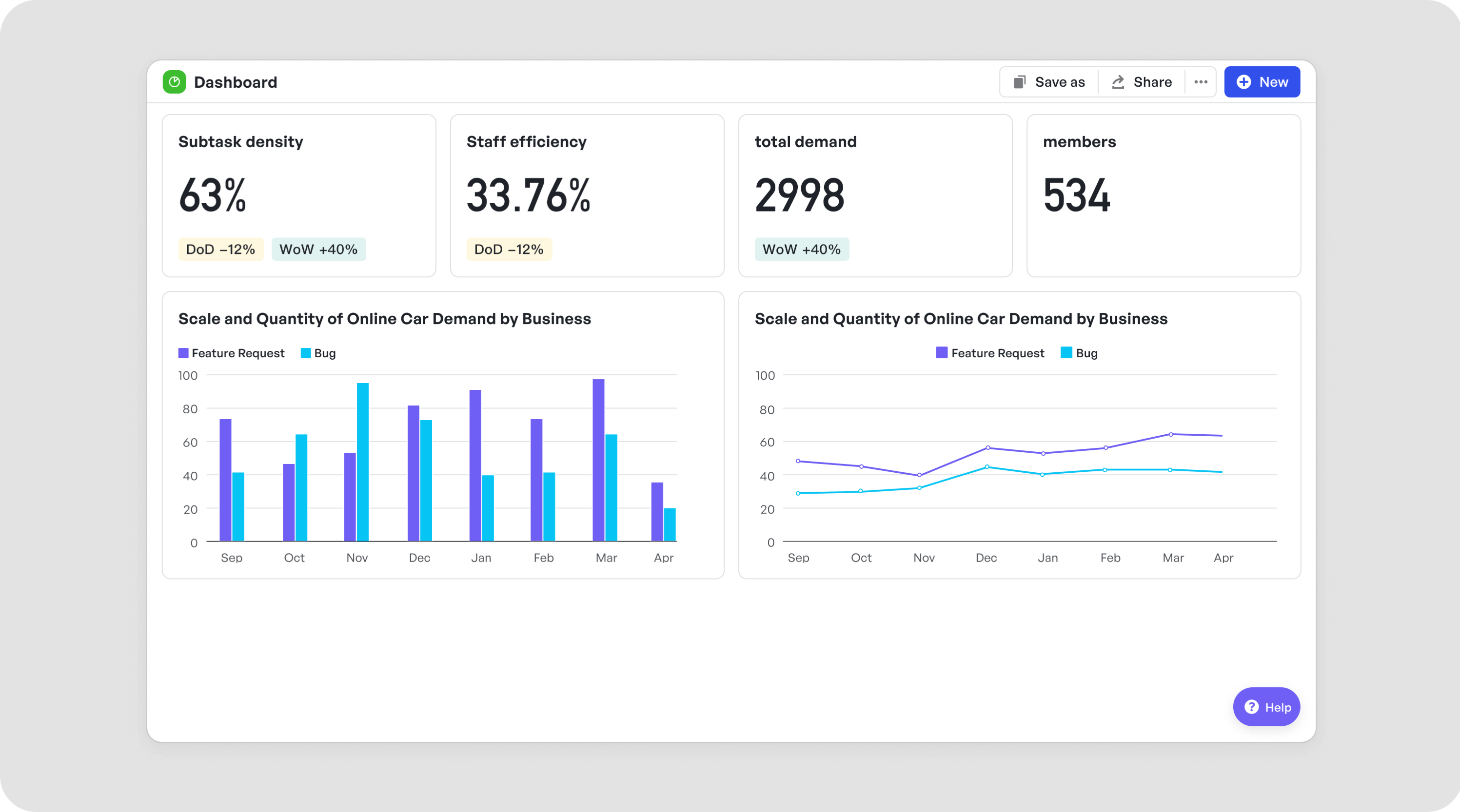
250px|700px|reset
- Process Tracking & Delay Identification
By closely monitoring the progress of tasks and identifying any delays, project managers can proactively address issues and keep the project on track, meet deadlines, and deliver successful outcomes.
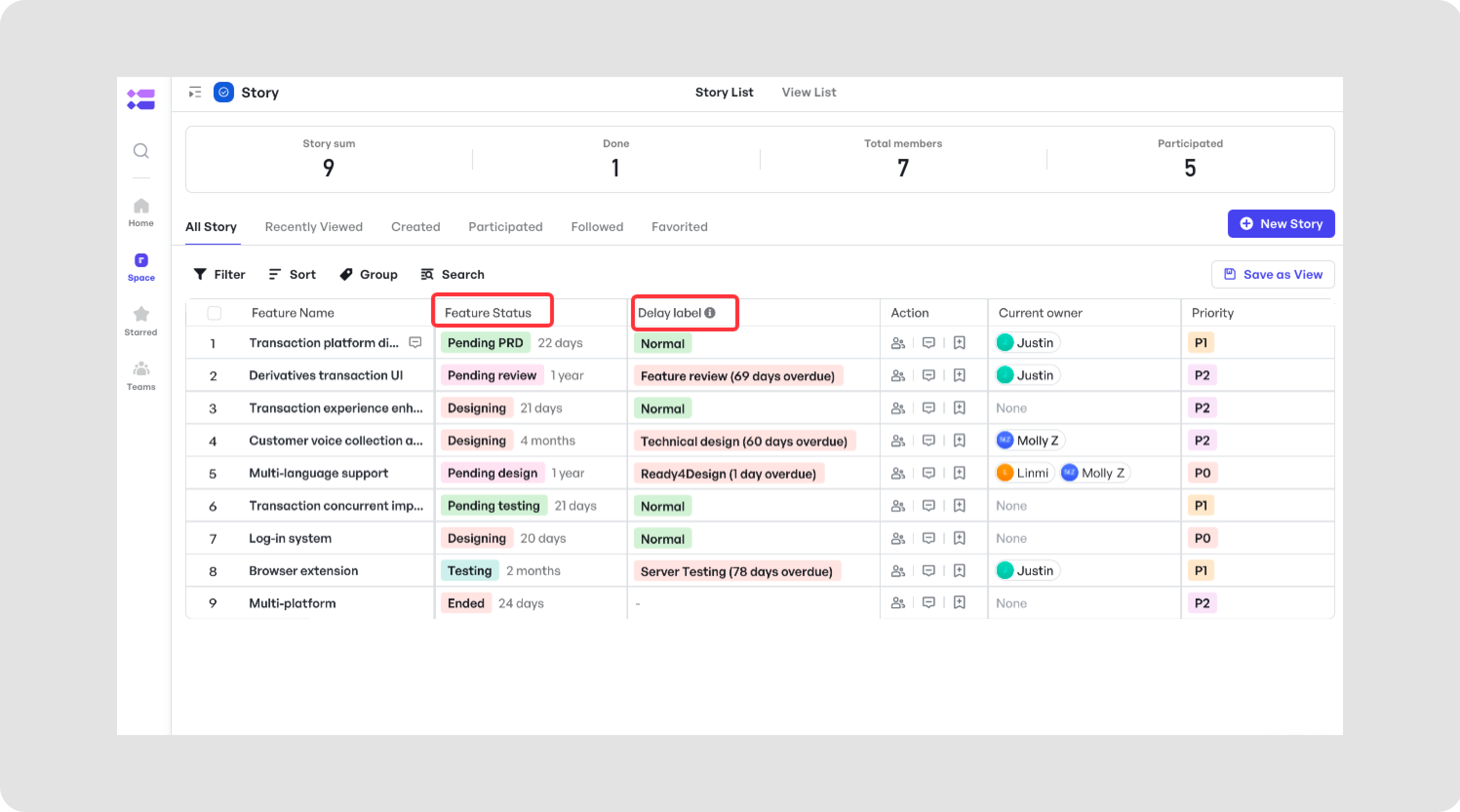
250px|700px|reset
- Task Splitting
Task splitting is a valuable technique that involves dividing a complex task into smaller, more manageable elements. By breaking down a task into smaller parts, it becomes easier to handle and can be assigned to different team members based on their strengths and expertise.
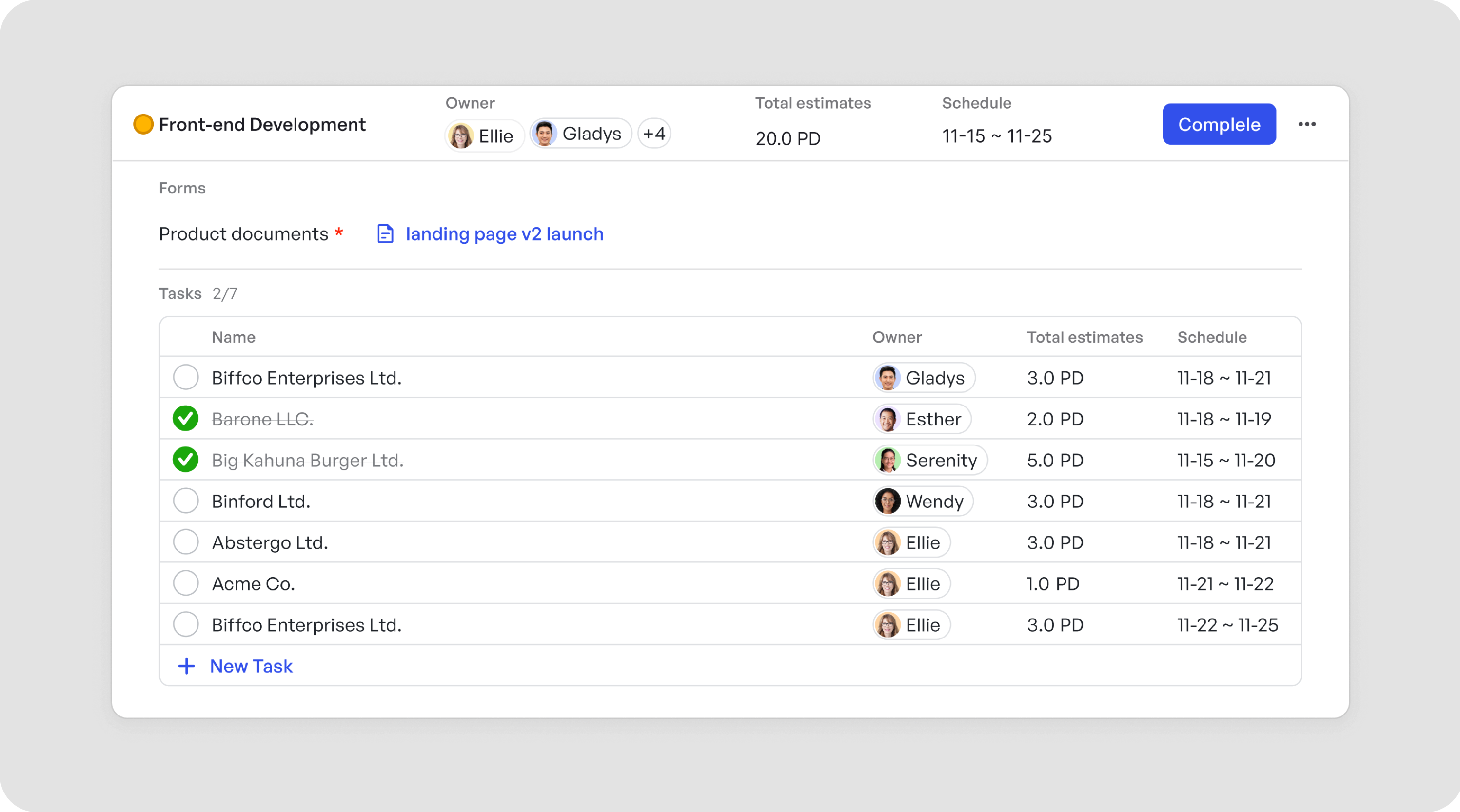
250px|700px|reset
